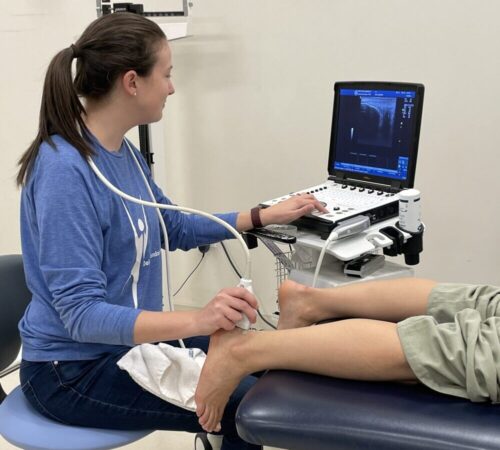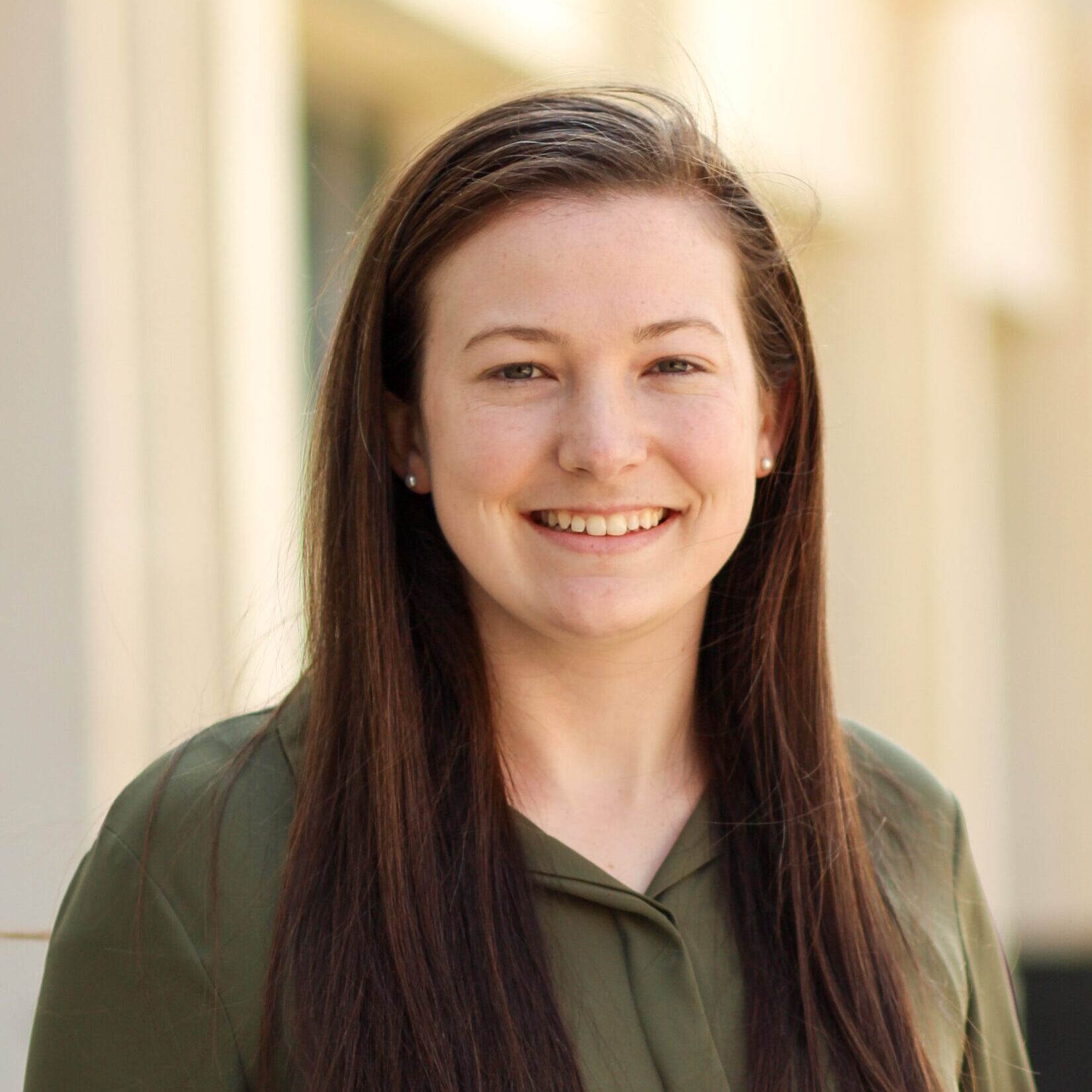Foundation Researcher Spotlight: Hayley Smitheman on Unraveling the Achilles Tendonopathy Puzzle
Hayley Smitheman, PT, DPT is a current PhD student in the Biomechanics and Movement Science Program at the University of Delaware. She is the recipient of the 2023 PODS II scholarship.
Can you tell me a little bit about yourself and your personal background?
I’m originally from Cary, North Carolina. I grew up around sports, particularly soccer, which sparked my interest in physical therapy due to early knee injuries. This curiosity led me to pursue athletic training, initially in high school and later at the University of North Carolina. At UNC, I not only gained academic knowledge in sports medicine but also practical experience in both field and clinical settings as an athletic training student.
After my time at UNC, I continued my academic journey at East Carolina University as a physical therapy student. While at ECU, I had the privilege of working with Dr. Rich Willy as a graduate research assistant in the motion analysis lab, an experience that ignited my passion for physical therapy research. This journey has been pivotal in shaping my current path. Outside of my professional pursuits, I enjoy outdoor activities like hiking with my husband and our dog and indulging in a good book.
What made you want to become a PT?
What drew me to physical therapy initially was the opportunity to blend movement and medicine while interacting with people. Over time, I discovered that this field offers a unique characteristic where you are rarely doing the same thing with two patients. It allows for creativity, problem-solving, and adaptability, whether it involves variances in patient presentations or their responses to treatment. This element of diversity and the need for adaptability is what initially captured my interest in physical therapy and has kept me engaged.
Can you tell us a little bit about your professional journey?
I completed a summer internship at Duke University’s K lab (Michael W. Krzyzewski Human Performance Laboratory) during my undergraduate years. During this internship I was introduced to the field of biomechanics research, sparking my initial interest in this area. My journey continued at ECU where I collaborated with Rich Willy in the motion analysis lab. Dr. Willy was working alongside Dr. Karin Silbernagel from the University of Delaware on a study concerning Achilles tendon ruptures. I was able to be involved in this project, which eventually led to me presenting at CSM as a DPT student. Witnessing the passion and dedication of researchers at the conference solidified my commitment to pursuing a long-term career in physical therapy research.
After completing my studies at ECU, I spent three years working as an outpatient physical therapist. During this time, I gained invaluable insights into the diverse nature of patients’ experiences. I became curious about why some patients seemed to recover more quickly than others and what mechanisms influenced their recovery. This curiosity drove me to pursue formal research training, under the mentorship of Dr. Silbernagel, who is now my Ph.D. advisor. Currently, I am in my fourth-year as a PhD candidate in the Biomechanics and Movement Science program at the University of Delaware.

What research have you been working on?
My research focuses on the various factors influencing the recovery process in individuals with Achilles tendinopathy. This condition exhibits considerable variation in recovery outcomes, with many patients enduring prolonged pain and functional limitations that affect their daily lives and overall well-being. To gain insight into this variability, my research is centered on examining the impact of metabolic factors on recovery from Achilles tendinopathy. Additionally, I explore the biomechanics of gait in patients, specifically those with insertional Achilles tendinopathy and those undergoing surgery, and aim to understand relationships between their symptoms, structure, gait patterns, and recovery. Ultimately, my research aims to contribute to the development of multidisciplinary treatment strategies and enhance our understanding of the mechanisms influencing recovery, with the overarching goal of improving outcomes for Achilles tendinopathy patients through targeted interventions.
What role has the Foundation played in your research so far?
The Foundation has played an instrumental role in advancing my research journey. I have been fortunate to receive the PODS I award in 2022 and the PODS II award in 2023. However, it’s not just about the awards I’ve received; I’ve also been fortunate to benefit from the mentorship of accomplished clinician-researchers whose work received support from the same Foundation. Furthermore, my first application for the PODS I award in 2021, even though it wasn’t granted, proved to be a valuable experience. The application process itself, with its rounds of writing and feedback from reviewers, significantly contributed to my ability to formulate well-defined research questions and set a strong foundation for my future success in this field.
What is the value of physical therapy research? Who does it benefit, and how, in your opinion?
I think physical therapy research is critical and promotes the advancement of the profession—from both the clinical and basic science standpoint—but also from an advocacy standpoint. Physical therapy is constantly evolving, and the ability to positively impact patient outcomes is driven by research. But again, I think physical therapy research is also critical in demonstrating the value of physical therapy as a whole from more of a healthcare perspective.
Any final thoughts?
I definitely want to express my gratitude to the Foundation for their support. I’m excited to continue this work and continue to be involved moving forward.

STAY CONNECTED
Use this form to sign up for the Foundation for Physical Therapy Research monthly newsletter.